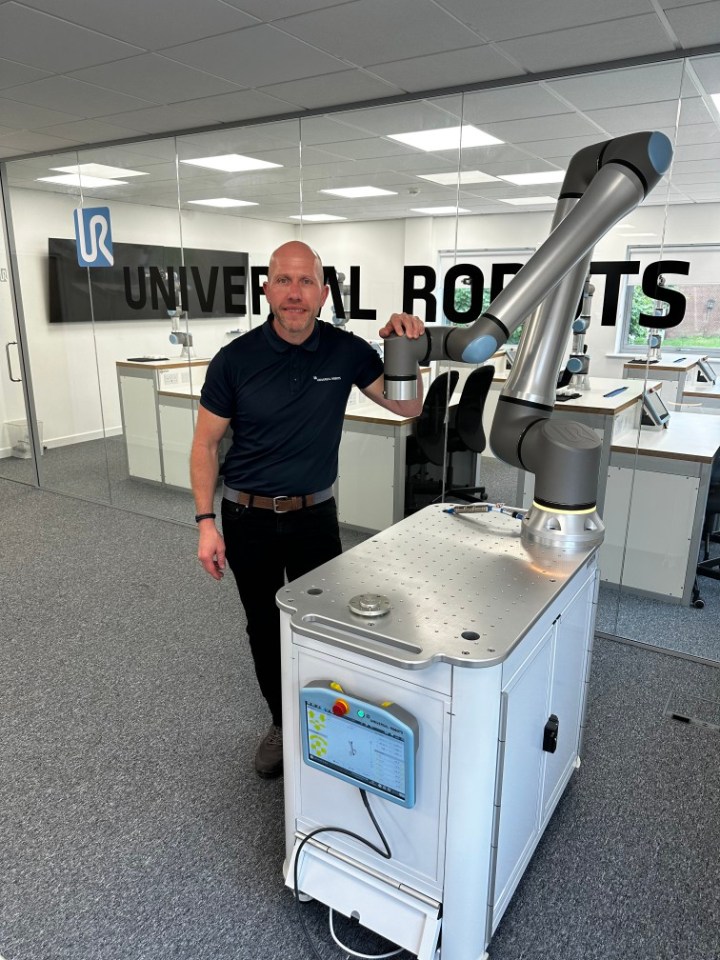PANIC over AI putting people out of work is nothing new, but less well known is that it is also creating employment.
The World Economic Forum’s 2025 Future of Jobs Report estimates 92million jobs will be lost to AI globally by 2030, but 170million will be generated, a net gain of 78million.
Working in the AI sector is one way to safeguard your career, but over the last year, as the popularity of tools such as ChatGPT and OpenAI has soared, salaries in the industry have split.
On the one hand, workers that help firms automate using AI-powered robotics have seen their salaries soar by 51 per cent over the last 12 months, while pay for senior data scientists is up by almost a third.
In contrast, however, more conventional roles, such as AI engineer, saw salaries drop by 26 per cent, as more people train for that and the necessary skills become more commonplace.
But the new data from online job board CV-Library.co.uk shows the average AI job pays £65,636, well above the national average salary, while the highest-paying AI role is an algorithm specialist, earning around £100,634.
David Lievesley, 52, an engineer for Universal Robots, says: “Automation touches almost all aspects of our lives, so the possibilities are endless.”
David, from Chesterfield, adds: “It means so many opportunities through your career to grow and move into different paths you might not have considered.
“If you are starting out from college or university, then having some form of qualification is an advantage as it gives any potential employer a steer on where you currently are skillwise.
“But it is not mandatory to have a specific robotic education.
“All my automation knowledge has been gained from hands-on experience. If you are more mature, do not let the lack of a specific qualification hold you back — there are opportunities, so just make it happen.”
Stylianos Taxidis, head of data and analytics at CV-Library.co.uk, says of industry pay levels: “Overall, AI-related roles have experienced a 0.5 per cent year-on-year decline, reflecting a competitive market.
“In contrast, roles such as robotics software engineer and principal data scientist are gaining momentum, potentially driven by automation demands and the need for data-driven business strategies.
“It’s therefore vital to stay aligned with industry priorities.”
BE BETTER PREPARED TO UNLOCK ANY OPPORTUNITIES
HERE are tips to maximise your money in the working world of AI:
- Specialise in emerging AI fields: With robotics and physical AI system roles on the rise, candidates should consider certifications in robotics programming or deepen their knowledge in real-time computing.
- Tune in to industry news: In such a fast-evolving field, staying informed is essential. Follow leading journals, subscribe to newsletters and attend relevant webinars and conferences.
- Upskill, and upskill some more: To stay at the forefront of AI innovation, keep learning. Enrol in courses that align with emerging technologies to stand out.
- Network and join communities: Immerse yourself in the AI community, from joining social media conversations to attending events or joining relevant online forums. These can all unlock potential job leads.
- Showcase your portfolio: Maintain a portfolio that highlights your best work. Demonstrate how you’ve applied AI skills in real-world projects.
ALL QUITE TAXING
BRITISH workers are the most confident in Europe about understanding their payslip – but a quarter are not so sure.
While 74 per cent of UK staff are fine with the calculations, 24 per cent struggle to understand tax deductions and 19 per cent find pension contributions baffling.
Worryingly, 18 per cent were not confident they could spot if they’d been underpaid, the study from payroll software provider PayFit suggests.
PayFit CEO Firmin Zocchetto said: “Payroll remains one of the major pain points in working people’s daily lives.”
But UK staff also have the highest trust in their employer, with 94 per cent believing their payslip is accurate, compared to 88 per cent in Spain and just 81 per cent in France.
IF you’d like a chance to get into the retail sector, or feel ready to move into management, fashion chain Primark has vacancies for team managers, retail assistants and department managers nationwide.
NEVER MIND A GAP
ALMOST a quarter of jobseekers have a career gap larger than a year on their CV, new research reveals.
This is up from 18 per cent in 2020, suggesting more long-term unemployment.
The study from jobseekers’ platform LiveCareer UK also found a third of CVs show a gap of six months, up from 24 per cent in 2020.
The share of candidates with uninterrupted work history fell from 61 per cent in 2020 to 51 per cent this year.
LiveCareer UK’s Jasmine Escalera said: “Career gaps are now the norm, not the exception.
“Whether due to layoffs, care-giving, reskilling or life transitions, most people have a gap in their CV.
“It’s time employers adjust expectations – and jobseekers learn to speak confidently about that break.”
Jobspot
BOOTS has more than 1,000 jobs on offer at its outlets nationwide. Roles available include customer advisers, store managers and health and wellness sales advisers.
Search for openings near you at boots.jobs.
CADETS WIN WAR ON MALE TOXICITY
DROPOUTS in education since the Covid pandemic have risen by 40 per cent among boys compared to just seven per cent among girls.
Simultaneously, there has been a significant rise in the number of toxic male influencers.
Army and Navy cadet forces, and the Air Training Corps, offer a proven alternative of structure, belonging and positive role models.
Cadets have better school attendance, achieve higher academic results, have improved mental health and greater life prospects.
Here, Professor Simon Denny, pictured, a former Army Officer, shares reasons why being a cadet can help your career.
He said: “The structure of the cadet forces builds qualities highly valued by employers.”
- Teamwork and communication: Cadets learn to work effectively in diverse teams, follow instructions and communicate clearly – interpersonal skills that are essential in any workplace.
- Problem-solving under pressure: Cadet training emphasises quick decision-making and creative problem-solving in high-stress situations, valuable when things go wrong at work.
- Vocational qualifications: Many cadets gain vocational qualifications in subjects directly relevant to the world of work. They are skilled and accredited.
- Character development: The emphasis on integrity, service and personal responsibility builds character traits that are attractive to employers.
- The edge: Cadets have had experiences, gained qualifications and learned about themselves and others, giving them advantages in the world of work.















